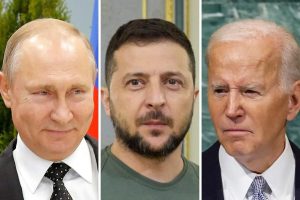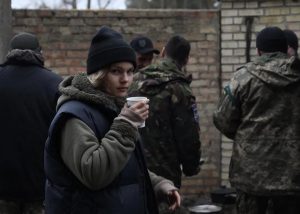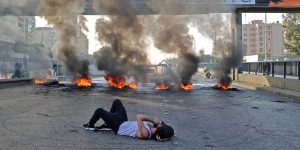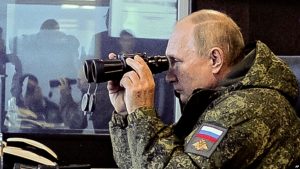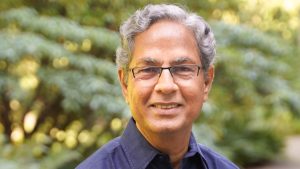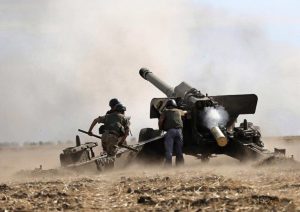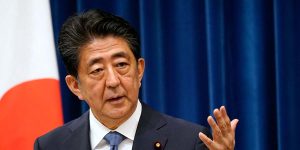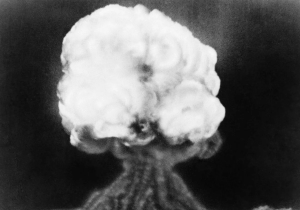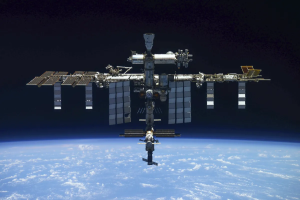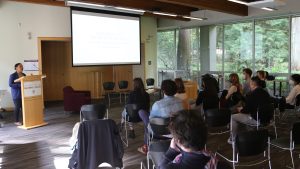Prof. Lisa Sundstrom quoted in article about Russian, Ukrainian, and US leaders’ influence in Ukrainian war
Prof. Lisa Sundstrom says that during the recent UN General Assembly, “Zelenskyy had the air of a man who had no appetite for conceding anything.” His proposal of a five-point plan for peace shows his justified defiance, she highlights.
Interview with Anastasiia Lapatina, Ukrainian war correspondent and UBC Political Science student
Fourth-year Political Science student Anastasiia Lapatina reflects on her time in Ukraine, shares her thoughts on the state of the war, and how it feels to be back in Canada.
Prof. Yves Tiberghien discusses “overlapping shocks” and international challenges in Op-Ed
“The international institutions, norms, and practices that we continue to rely on are increasingly being eclipsed by geopolitics,” writes Prof. Tiberghien. In this Op-Ed with Bertrand Badré, he addresses the grim reality that major world leaders are losing faith in each other, and the fact that “global governance cannot really be sustained without the participation of the world’s largest economies and military powers.”
Prof. Lisa Sundstrom comments on apathy of Russian citizens in Ukraine war
Prof. Sundstrom says that although there is some support for the invasion of Ukraine in Russia, “people are just going about their lives … and if it doesn’t impact them directly, they don’t have to worry.” Although external pressure from Ukraine and the world continues to mount on Russia, internal opinions are not showing much change.
Welcoming Visiting Professor Swaran Singh
Hailing from Jawaharlal Nehru University, and President of the Association of Asia Scholars, Visiting Professor Swaran Singh brings his wisdom and experiences to the UBC Political Science department. We spoke to him about his upcoming talk at UBC Political Science, his teaching, and his thoughts on coming to Vancouver.
Visiting Prof. Swaran Singh comments on role of United Nations Arms Trade Treaty in Op-Ed
The UN Arms Trade Treaty asks that parties report annually their trade in conventional weapons. But with hesitation surrounding export-control and arms transfers, “the lure of financial and political windfalls from the conventional weapons trade has made the ATT’s task a difficult one,” visiting Prof. Singh writes.
Prof. Yves Tiberghien discusses Shinzo Abe’s influence and Japanese foreign policy in ‘Now’ podcast
In episode 25 of Alan Alexandroff’s ‘Now’ podcast, Prof. Yves Tiberghien considers former Japan PM Shinzo Abe’s legacy, in international economics and building networks with North America and in the Indo-Pacific.
Prof. Allen Sens talks nuclear weapons, changing political tensions, and the delicate threat of mutually assured destruction
“It’s been a slow kind of creeping reality that nuclear weapons are not only still with us, but that tensions that could lead to nuclear confrontation are also increasing,” says Prof. Sens, considering the Russian invasion of Ukraine and other tense international relations.
Prof. Michael Byers discusses Russia, the ISS and space warfare with Dr. Aaron Boley in Op-Ed
In this Op-Ed, Prof. Byers & Dr. Boley examine the consequences of Russia’s threats of leaving the ISS, and their willingness to strike space targets. “International co-operation in space matters,” they write. “If it stops, all bets are off.”
Photos from our Graduate Research Conference
UBC Political Science would like to congratulate our Graduate Students, who put together a wonderful conference in May. We would particularly like to thank Conference Chair Katelynn Kowalchuk and Keynote Speaker UBC Professor Genevieve Bates.
